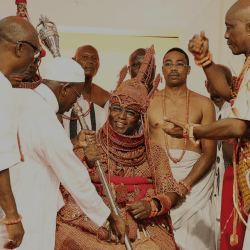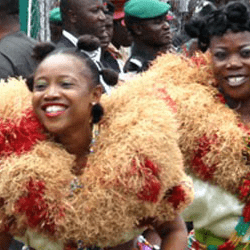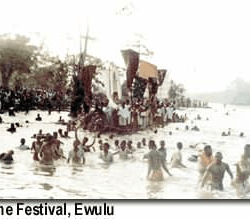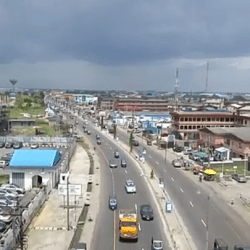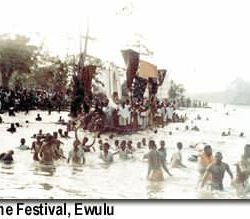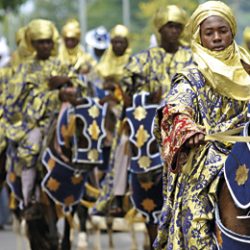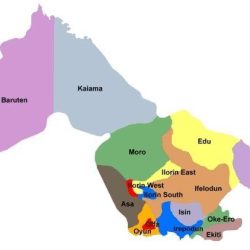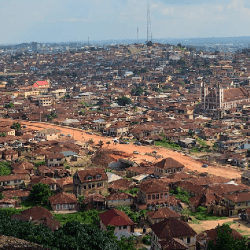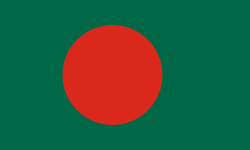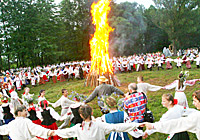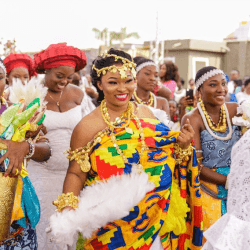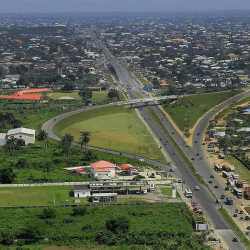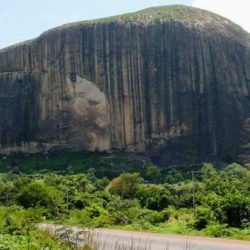Edo State has a tradition of festivals and masquerades through which the people either appease the various gods and goddesses initiate men and women into age-grades or as a traditional get-together.

The Igue festival takes pre-eminence among festivals celebrated in Edo State. It is celebrated every December each year by the Oba of Benin to usher in the New Year and as a thanksgiving for the outgoing one. The Igue festival attracts tourists from across Nigeria and abroad. Most of the festivals have a yearly cycle and are open to general viewing and sometimes, participation. Some others like the Obazu festival held among the Aomas of luleha in Owan West Local Government Area is strictly restricted to the men folk.
Other important festivals celebrated in Edo State are Ekaba, Ukpe, Irua, Agiele, Adu-Ikukwua, Ebomisi, Eho, Ipihionua, Ugbele, Itakpo, Ofarhe, Emomorhe, Iko, Uzo, Ugozo/Ihiasa, Uba, Egbere, Owere, Ukpako, Oriminyam, Ohonmoimen, Itikiri, Ivhamen/Ororuen, Amekpe, Oto-Uromi, Ighele and Okpuge-Oro.
The masquerades in Edo State are generally believed to be earthly representatives of some celestial gods, goddesses or ancestors. Masquerades like the Igbabonelimi of Esanland are very popular social entertainers whose secrets and workings are only known to initiates who are sworn to utmost secrecy.
Many masquerades are linked to traditional festivals, while others are only social and have no ritualistic backgrounds.

The ancient Bini Kingdom dates back to 900 AD. Historical evidence lends credence to the fact that the Oba of Benin used to send his sons to different parts of the then Bini Kingdom as vassals to establish and consolidate his imperial authority in these areas. This explains the cultural similarities of these people with the core Bini ethnic stock.
DRESSING
The indigenes of Edo State are for their traditional attires epitomized in the traditional male mode of dressing. A flowing agbada made with Ankara, voile, lace, jacquard or guinea cloth material is worn over a trouser and topped with either a long or short-sleeved loose shirt of the same material. Usually, an embroidered or fez cap on the head and a carved walking stick complements this dressing. Generally, many males dispense with the agbada for convenience sake, except for very important occasions.
For some traditional rites, the white wrapper is usually tied around the waist. Coral beads (ordinary or ornamental) are popular among the men and womenfolk.
The dressing pattern of Edo women is a hybrid of what obtains in some of the southern states. The women are usually dressed in buba and wrapper or short-sleeved blouse and wrapper. The variations in dressing are dictated by circumstances and economic standing. Guinea brocade, voile, jacquard, aso-oke (hand-woven cloth) and George are very popular among the women. Particularly popular, is the George wrapper topped with artistically-tailored voile or linen blouse. Gold or silver trinkets, bracelets, bangles, earrings and chains are popular adornments for the women of Edo State.
Tradition frowns at women wearing trousers, except during burial ceremonies where female children of the deceased wear their late father’s agbadas and trousers and dance around the town or village. An elaborately made head-tie complements the social dressing of the Edo woman. Of cultural significance is the Iwu traditional dress that is peculiar to the Binis. This dress mode comprises of a shirt lined on both ends and worn on top of a skirt.
MUSIC, SONGS, AND DANCE:
In the music sector, Edo State is blessed with a large coterie of nationally and internationally renowned performers. Sir Victor Uwaifo leads his pack, a multi media artist who was trained at Yaba College of Technology and the University of Benin. He has performed in major cities in the world. In 1995, Sir Uwaifo was invited for a performance at the United Nations Golden Jubilee celebrations.
Others in this category include Sunny Okosun, Peter King, Felix Duke, Osayomore Joseph and many others who have flown the flag of Edo State creditably. Itinerant traditional performers who are mainly hired for burial, naming ceremonies, age-grade festivals and others abound in Edo State. Chief Omobuare, who died in February 2002 at the age of 92 years, was a leading exponent of the traditional Esan music genre called Asologun. His virtuosity on the wooden piano and his philosophical ditties won him fame in Esan land and beyond.
Collins Elaiho, Segun Alile, the late General Bolivia Osigbemhe, Vincent Ugabi, Sir Waziri Oshomah, Aibor Bello, Omo Smart Idonijie, Constantinopolous Osigemhe, Benji Igbadumhe, Patrick Idahosa, Omoadoni, Adesua, Queen Orete and scores of others have modernized the folklore songs of their people into universally-accepted music forms.
Isaac Ayeni and Anco Momodu (Anco Limited) are exponents who are largely regarded as the doyens of the traditional music genre in Edo State.
Edo songs or dances have evolved in many communities in the state and have socio-cultural backgrounds. The same pattern of call and response mode of singing and the deft chorographical dance steps obtain in all the areas of Edo State.
Most traditional songs are accompanied by heavy beats which the dancers step in tune with. Praise-singing is commonplace among musicians in the state.
The involvement of the youths in the performance of these songs and dances ensures continuity in the traditional heritage of the people from one generation to the other.
CUISINE
The traditional cuisine in Edo State is fairly representative of what obtains in most southern states in Nigeria. Pounded yam or eba are eaten with vegetable, melon or okra soups cooked with either bush meat (Antelope, Pig and Grasscutter etc), beef or fish. Yam and rice, which are grown in the state is also eaten with other varieties of soup and meat or fish throughout the state. Garri, which comes in white or yellow variants can be eaten or soaked in water and accompanied with beans, meat, fish, groundnuts etc.
Rice and beans are popular across the state. The people of Edo State also prepare yam or cocoyam porridge in homes and restaurants.
Non-indigenous foods like amala, starch, pepper soup, fufu and banga soup, have lately crept into the local cuisine. This is due to the constant social interaction of the people with large migrant community from other parts of Nigeria.
Edo
Edo is a state in southern Nigeria that was created in 1991 from the former Bendel State

The capital and largest city of Edo State is Benin City, which was the center of the ancient Benin Empire

The state has a population of about 4.8 million people as of 2022, and covers an area of 19,559 square kilometers

Edo state is bordered by Kogi, Anambra, Delta and Ondo states, and has a coastline on the Atlantic Ocean
The state is home to various ethnic groups, mainly the Edo (or Bini), Esan, Ora, Akoko-Edo, Owan and Afemai people
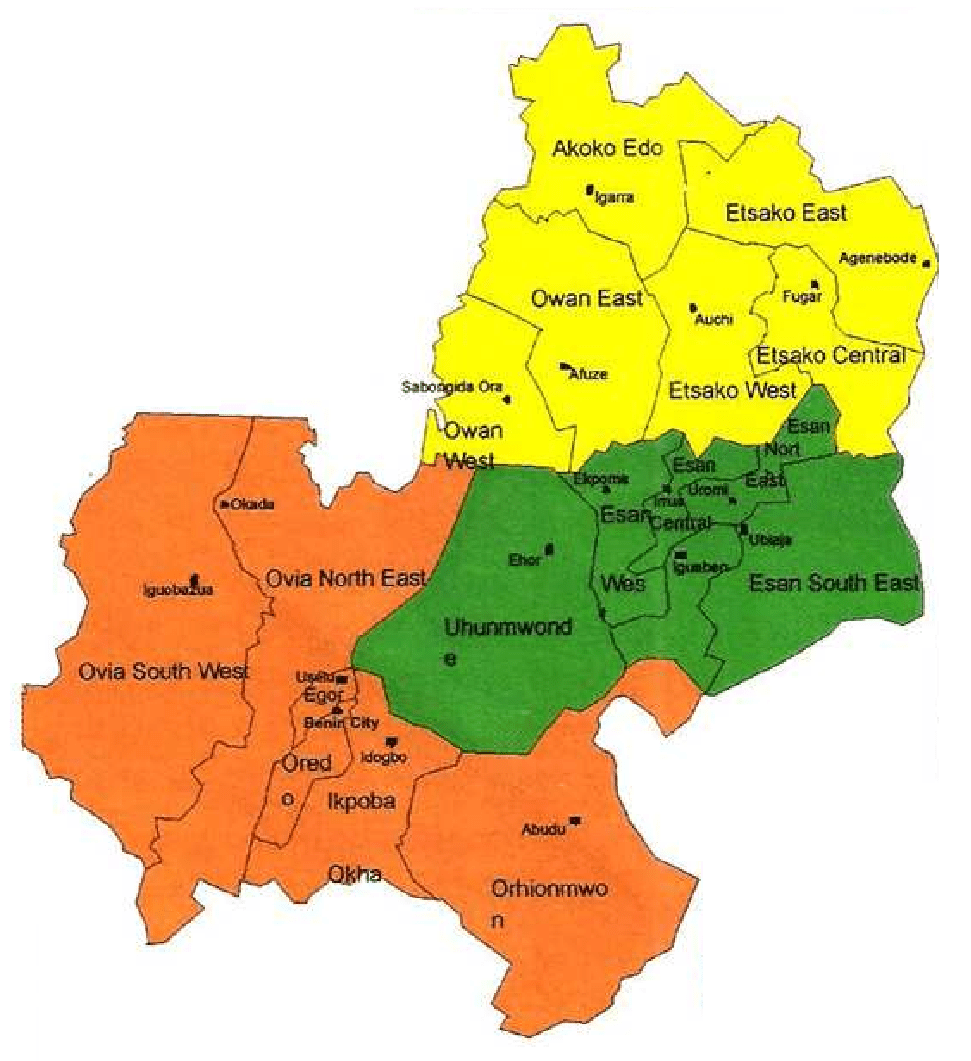
The most common language spoken in the state is Edo, which belongs to the Edoid branch of the Niger-Congo language family
The state is predominantly Christian, but also has followers of Islam and traditional religions
Edo is known as the Heartbeat of Nigeria, and has a rich cultural heritage and history
It has a diverse economy, with sectors such as agriculture, manufacturing, oil and gas, tourism, education and health
Edo people
With Benin City as capital, the population of the entire state is approximately 4million.It is made up of three major ethnic groups; namely the Binis, Esan and Afemai. However the State has a high presence of residents from across the country and the world because of its cosmopolitan tendencies. Benin City the capital has a history of being one of the foremost destinations of Europeans during their exploration of Africa continent many centuries ago. Some of the flash points have remained enviable tourists’ attraction for the state.


Geography
The State has a land mass of 19,794 km square. Lying on 05 44 N and 07 34 N latitudes,05 4 E and 06 45 E longitudes. Edo State is low lying except towards the north axis where the Northern and Esan plateaus range from 183 metres of the Kukuruku Hills and 672 metres of the Somorika Hills.
Location
It is so located that it forms the nucleus of the Niger Delta region. It is bordered by Kogi state to the North and Delta State to the East and South, Ekiti and Ondo States to the West.
Climate
The climate is typically tropical with two major seasons- the wet (Rainy) and the dry (harmattan) seasons. The wet season lasts from April to November and the Dry Season December to March.
Government
The governor of the state, at every time is the head of government. There is the Executive arm of government, the Legislature and the Judiciary. The state has eighteen local government councils each constitutionally headed by a democratically elected Chairman.
Vegetation
Edo is blessed with two major vegetational belts namely: the Forest Belt of the South and Central parts while the Guinea Savannah is in the northern part.
Minerals
Natural resources in Edo State are in abundance. There is a heavy reserve of hard wood and high quality timber. Other mineral endowments include: Rubber, Limestone, Marble, Lignite, Clay, Kaolin, Crude Oil, Gold, Granite and Bitumen.
Agriculture
Apart from the wood products, there is high yield of Agricultural food crops, Cocoa,
Rubber, Palm trees, Vegetables, Cotton, Pineapple, Mango, Cashew, Cassava, Bushmeat, Snails, Fish and Rice.
Industries
The thriving industries are Carving, Saw-milling, Rubber processing, Cement and Textile, Brewing and Flour milling etc. The state also boast of key industries in the country such as Bendel Cement Factory Okpella, Bendel Brewery Benin City, Guinness Nigeria Benin-City, Nigeria Bottling Company (Coca-Cola) Benin City, Ewu Flour Mill Ewu and Bendel Pharmaceutical Benin-City, Okomu oil Plc , Presco Plc just to name a few. The Small-Scale industries are also on the increase with many Banks and Fast Food Eateries opening up their outlets in the capital and other emerging cities across the state.
Education
Edo State is one of the most educationally advanced States in Nigeria. Its notable tertiary institutions include the University of Benin, Ambrose Alli University Ekpoma, Igbinedion University Okada, Benson Idahosa University, Auchi Polytechnic Auchi, College of Education Ekiadolor, College of Agriculture Iguoriakhi and Institute of Management and Technology Usen.
Healthcare
Government in conjunction with local governments and some international agencies have successfully spread Medicare across the state. There are government hospitals, local government centres by local authorities and quite a few others jointly managed with some non governmental agencies.
Seaports
From Edo State, there is easy access to Warri seaports. The state also has a direct route to Lagos from land and air. Edo is known as the heartbeat of the country because of its easy accessibility from various Southern cities like Lagos, Warri, Port Harcourt and the Eastern states.
Arts and culture
Edo is famous for her works of art, they include plaques, busts and royal figures. Some of these art works were looted during the British invasion of the Benin Empire in 1897. Various pottery, utility carving, bronze casting, smothering, Jewelry, mat-making, cloth weaving etc thrive in the state.
